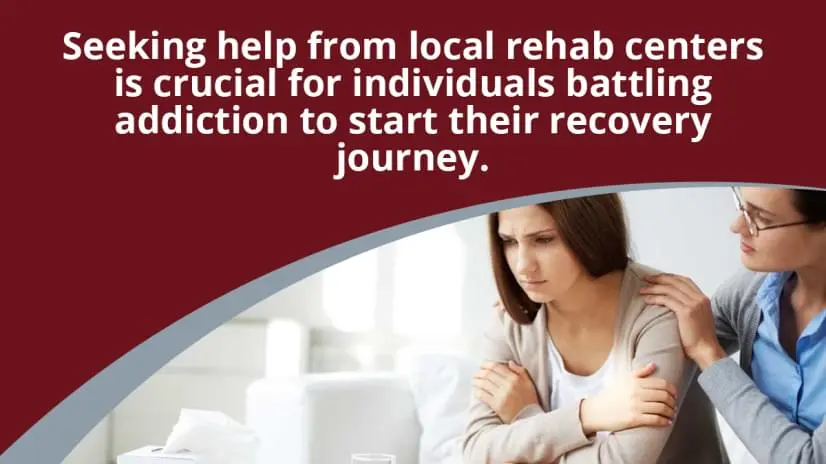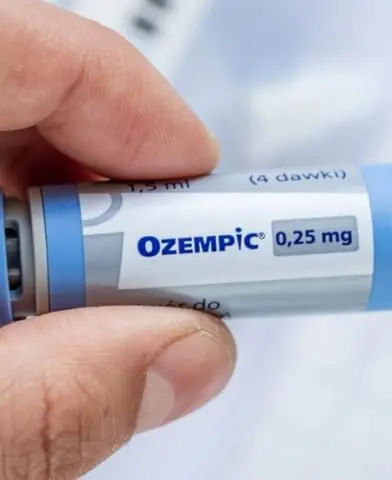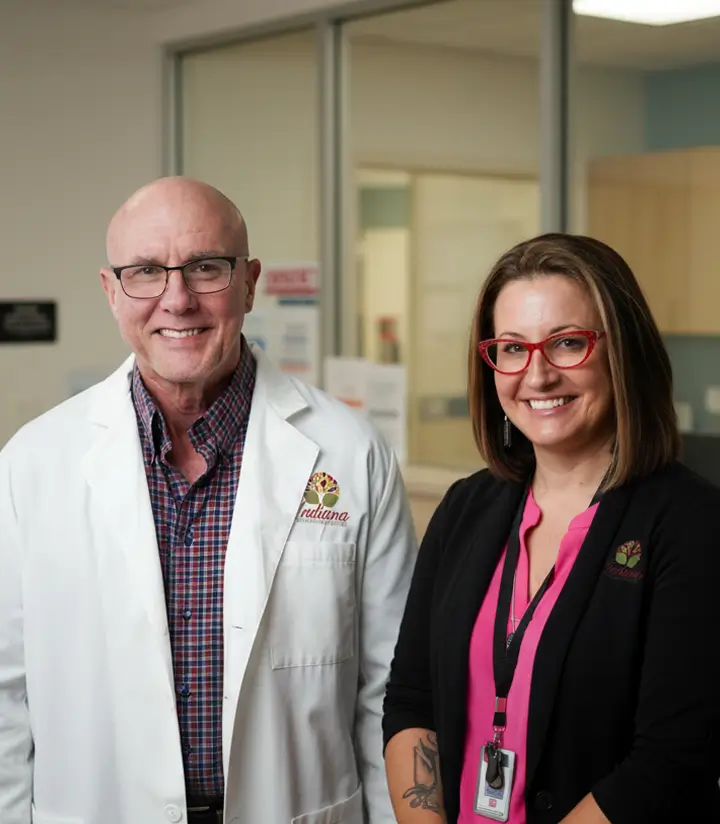
Drug Addiction Treatment Near Naperville, Illinois
Clinically Reviewed by:
Naperville, Illinois, faces a drug problem. Many individuals struggle with substance use disorder and alcohol abuse. Fortunately, treatment can be found just across the border at Indiana Center for Recovery.

Key Takeaways
Customized levels of care, including detox and outpatient services, address substance abuse near Naperville, Illinois. Here’s what you need to know:
- From detox to outpatient care, Indiana offers diverse and flexible treatment options.
- Various insurance services and payment options are available to make the treatment accessible.
- Seeking help from local rehab centers is crucial for individuals battling addiction to start their recovery journey.
Indiana Center for Recovery empowers you to overcome addiction. Call us today at (844) 650-0064 to learn more about our services.
Prevalence of Drug Addiction in Illinois
In 2017, Illinois faced a serious problem with drug addiction. There were 2,202 overdose deaths involving opioids, or 17.2 deaths per 100,000 people. This rate was higher than the national average of 14.6 deaths per 100,000 people. The drastic increase in opioid-related deaths was linked to synthetic opioids like fentanyl.
Heroin-related deaths also went up, from 844 to 1,251 in the same period. Further report by the Illinois Department of Public Health, in 2020 alone, there were over 2,944 opioid-related overdose deaths, marking a 33 percent increase from 2019. Synthetic opioid deaths have risen by 80 percent since 2013.
Drug Rehab Centers to Tackle Substance Issues
The goal of helping people in Naperville, Illinois, is met by supporting them through treatment. Drug rehab centers provide different kinds of help, like counseling and therapy, to deal with both the physical and emotional sides of addiction.
They create a safe and supportive environment for individuals to overcome their drug dependence. The aim is to empower people, giving them the tools they need to lead healthier, drug-free lives without relying on drugs.
Treatment at Indiana Center for Recovery
Indiana Center for Recovery offers various treatment methods to help individuals struggling with substance abuse, such as alcohol addiction and mental health issues. These methods ensure a full continuum of care and effective recovery services.
Detox
Detox is the first step in various addiction treatment programs. It involves safely managing withdrawal symptoms as the body clears itself of drugs or alcohol. Detox programs provide medical supervision and support to ease withdrawal effects such as nausea and body discomfort. They offer medications to lower the risk of relapse and ensure safety during this critical phase.
Residential Treatment
Residential treatment, or inpatient treatment, provides a structured setting where individuals live at the facility while receiving intensive therapy and support. Residential programs offer a supportive community, around-the-clock care, and comprehensive therapy to address addiction and mental health issues effectively.
Outpatient Program
Outpatient programs allow individuals to attend therapy sessions while still living at home. Outpatient treatment is designed to allow patients to maintain their daily routines, like attending school while receiving suitable support. Healthcare providers offer guidance to overcome substance abuse and mental health disorders such as anxiety or depression.
Features of Effective Treatment Programs
Effective treatment programs prioritize individualized approaches and consider the duration of treatment as a key factor in fostering recovery. Here’s what you need to know:
Individualized Treatment Approach
One critical feature of successful treatment programs is an individualized approach. Recognizing that each client has unique needs, programs tailor treatment plans to address specific challenges related to addiction, mental health disorders, and other individual factors.
This individualized approach ensures that the treatment plan matches the client’s needs and offers cognitive behavioral therapy (CBT) and dialectical behavior therapy (DBT), providing a holistic and tailored path to recovery.
Duration of the Treatment
Effective treatment programs understand that the duration of treatment plays a vital role in achieving lasting recovery. Recognizing that different individuals require varying lengths of care, programs offer flexibility in the duration of treatment.
Programs typically range from several weeks to several months for effective recovery. Duration depends on progress, personal circumstances, and healthcare professionals’ recommendations. Effective treatment considers the individual’s pace, increasing the chance of sustained recovery and sobriety.
Continuous Support and Aftercare
Continuing support and aftercare play a crucial role in addiction treatment success. Once the formal treatment program concludes, individuals benefit from ongoing assistance to maintain their newfound sobriety. Continuous support may involve regular check-ins, counseling sessions, or participation in support groups.
Aftercare programs provide a safety net, helping individuals navigate challenges and prevent relapse. These supportive measures ensure a smoother transition back into daily life, emphasizing the importance of sustained recovery.
Benefits of Seeking Drug Addiction Treatment
Seeking drug addiction treatment offers a range of benefits, positively impacting physical health, mental well-being, and social connections.
Physical Health Recovery
One significant benefit of drug addiction treatment is the opportunity for physical health recovery. Rehab programs, including drug abuse treatment and alcohol rehab, provide individuals with the tools and support needed to overcome the physical effects of addiction. They offer art and music therapy, organize recreational activities, and tailor treatment plans to address individual needs.
Mental Health Improvements
Beyond physical health, seeking drug addiction treatment leads to notable improvements in mental health. Rehab programs often address co-occurring mental illnesses, recognizing the link between addiction and mental health challenges. Incorporating mental health support such as talk therapies, yoga therapy, and counseling positively impacts overall well-being.
Social Benefits
Engaging in drug addiction treatment brings about social benefits that extend beyond individual recovery. Rehab programs emphasize the importance of social connections and may involve families in the treatment process. Family therapy and support can strengthen relationships, providing a crucial foundation for ongoing recovery. Additionally, participation in intensive outpatient programs encourages individuals to build a supportive network.
Finding the Right Treatment Center Near Naperville
Finding the right treatment center can be daunting. There are several things to look for in a reputable treatment center near Naperville, IL.
Considerations when you are choosing a treatment center:
- Accreditation: Ensure the facility is accredited and meets quality standards for effective treatment.
- Treatment Approaches: Evaluate if the center offers diverse treatment methods, such as therapy, counseling, and medication-assisted treatment.
- Staff Credentials: Check the qualifications and expertise of the staff to ensure a high level of care.
- Customized Programs: Look for centers that tailor treatment plans to individual needs for personalized care.
- Family Involvement: Assess if the facility includes family therapy to strengthen support networks.
- Aftercare Services: Consider centers that provide continuous support and aftercare to enhance long-term recovery.
- Location and Environment: Evaluate the center’s location and surroundings for a comfortable and conducive recovery environment.
Selecting the right treatment center is a vital step toward a healthier future. By considering these factors, individuals can make informed decisions, ensuring they receive the support and care needed for a successful and lasting recovery.
Frequently Asked Questions (FAQ)
What kind of drug addiction treatments are available at Indiana Center for Recovery?
At Indiana Center for Recovery, various drug addiction treatments are available, including outpatient care, inpatient programs, and detox services. Outpatient drug rehab offers flexibility, allowing individuals to receive treatment while living at home.
Inpatient programs provide intensive, 24/7 support within a facility. Detox services help manage withdrawal symptoms. Moreover, therapy programs during treatment are also available for long-term sobriety.
How long does drug addiction treatment typically take?
The duration of drug addiction treatment varies based on individual needs and the severity of addiction. Programs at an alcohol rehab center typically range from a few weeks to several months.
However, treatment doesn’t necessarily end after completing a program; many individuals benefit from ongoing support and therapy to maintain sobriety. Ultimately, the length of treatment depends on factors such as progress, personal circumstances, and the recommendations of healthcare professionals.
Indiana Center for Recovery
Naperville families across DuPage and Will counties continue to feel how rising opioid and alcohol misuse affects tech corridors, school districts, and riverfront neighborhoods, so many look beyond Chicago’s suburbs for treatment that blends medical safety with long-term planning.
If withdrawal symptoms are stopping you from starting, our supervised alcohol & drug detox program delivers 24/7 nursing care, medication support, and a guided handoff into therapy so you can clear substances safely before focusing on the work of recovery.
After stabilization, you can tailor services to your schedule—addiction treatment services combine counseling, peer support, and medication management; the flexible outpatient drug & alcohol program keeps you connected to work or family; and our inpatient rehab program pairs daily structure with integrated dual diagnosis care so co-occurring mental health concerns are addressed alongside substance use.
Call (844) 650-0064 to verify insurance, review admission timing, and map out your next steps. Look into our Merrillville rehab center, the closest ICFR location to Naperville, to explore nearby programs and connect with specialists ready to guide your recovery.






 100% Confidential
100% Confidential
